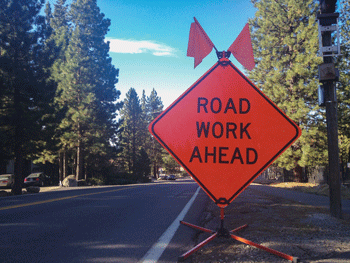 Let’s be honest with ourselves. No one, even the most progressive among us, likes to pay taxes. Nor do we enjoy paying our rent, mortgages, utility and insurance bills, or any other cost of daily living that does not reward us the same way a new car or even a new outfit does.
Let’s be honest with ourselves. No one, even the most progressive among us, likes to pay taxes. Nor do we enjoy paying our rent, mortgages, utility and insurance bills, or any other cost of daily living that does not reward us the same way a new car or even a new outfit does.
We do, however, enjoy having homes with electricity and temperature controls and knowing that insurance can help us cope when adversity strikes. That requires us to pay to maintain these mainstays of American life. Most of us do that routinely, though sometimes begrudgingly.
Taxes are a different story. It is harder to connect the mainstays of America’s collective life — schools, roads, bridges, mass transit, military services, law enforcement and public safety, and other governmental services — with the checks we write to the U.S. Treasury and the N.C. Department of Revenue and other taxes we routinely pay. Governmental services are big and abstract by comparison with the air conditioning keeping our homes cool all summer and the safety professionals who protect us in our own communities.
Like so much else in life, changes in the U.S. tax structure have largely snuck up on us. Over the last 6-7 decades, tax rates for the wealthiest Americans, particularly corporate tax rates, have steadily declined while tax rates for the majority of us have remained the roughly same or risen. This includes sales taxes and some government-mandated “fees,” since they impact lower income earners more than those in the upper levels. Most critical is the corporate tax rate. Very few advanced nations maintain corporate tax rates as low as the United States.
Since the 1950s, the corporate tax rate has steadily declined and is now to the point that major U.S. corporations pay no taxes at all. The New York Times reports that these include Fed Ex (despite all the millions of packages it has delivered during COVID), government contractor Booz Allen Hamilton, Nike and agricultural behemoth Archer-Daniels-Midland.
You are not wrong if you wonder how these corporate giants keep what they make while you share a hefty percentage of your resources with various levels of government. And, you might note that higher income Americans own more stock in such corporations than lower income Americans do, meaning that they share in bigger corporate profits. The rich are indeed getting richer, and the divide between them and the rest of America continues to grow.
Our nation has invested very little in our infrastructure since the big highway efforts of the mid-20th century, and it shows. President Biden is promoting a major infrastructure initiative to do what we have not done in decades. Americans want to be safe and secure in our homes and on our roads, and we support this effort. It will not happen, however, without changes in our tax structure, which Biden is also supporting. Over time, both Democrats and Republicans have backed tax reductions for corporations and by extension, wealthy Americans, but there is little to no evidence that those reductions have produced expanded job opportunities or higher incomes. In short, trickle-down economics have failed. They have actually done the opposite. They have trickled — or flooded — upward, accelerating the gulf between haves and have-nots.
Millions of us want better and safer infrastructures. As politicians debate them and the rest of us listen and ponder, we must keep in mind this truth. In government, as in our private lives, we get what we pay for.
Pictured above : President Joe Biden is promoting a major infastrusture initiative. Many argue that it will not happen without changes in our tax structure.